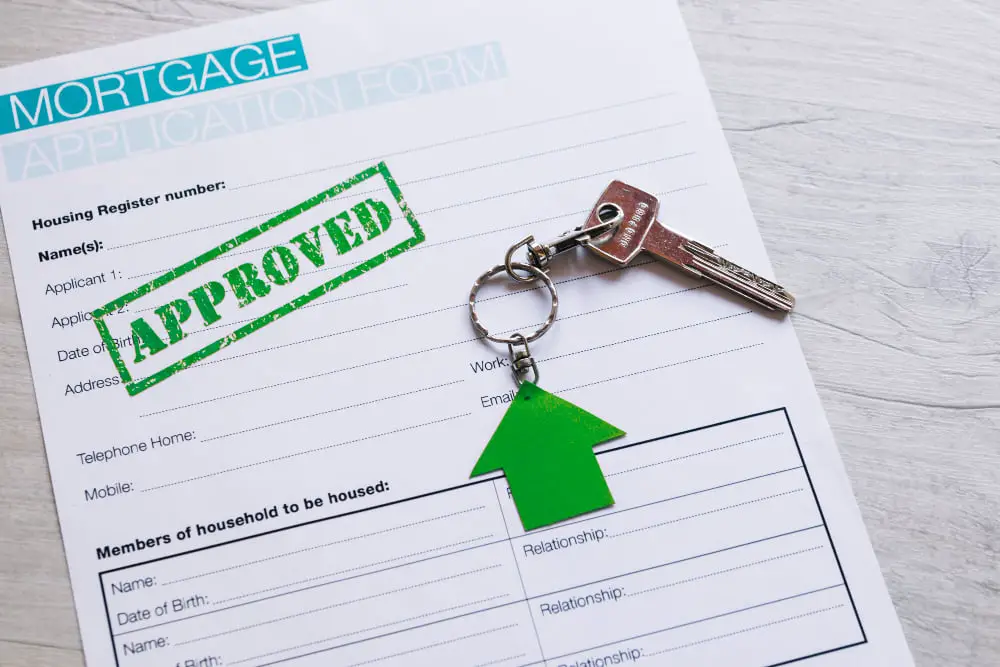Last updated on
Homeownership, the quintessential part of the American Dream, is often viewed as a complex and daunting process. However, with the right information and guidance, it can be a rewarding journey towards financial growth and stability.
Our comprehensive guide intends to demystify the real estate process, providing you with the knowledge and tools needed to make informed decisions. From understanding the intricacies of mortgages to navigating the labyrinth of home inspections and property values, this guide aims to turn the key, unlocking the door to your successful homeownership.
Understanding Mortgages

Essentially, a mortgage is a loan taken out to buy property or land. The loan is ‘secured’ against the value of your home until it’s paid off.
If you can’t keep up your repayments, the lender can repossess your property and sell it to get their money back. There are several types of mortgages, each with its own set of terms, conditions, and rates.
These include fixed-rate mortgages, adjustable-rate mortgages, and interest-only mortgages among others. Choosing the right mortgage for your needs involves considering various factors such as your financial stability, your credit score, the size of your down payment, and your long-term financial goals. Seeking advice from a mortgage advisor can be incredibly beneficial.
They can help you understand the different types of mortgages, how they work, and which one could be most suitable based on your circumstances. They can also guide you in preparing the necessary documents and applications that are involved in the mortgage process.
Evaluating Property Values

Property value refers to the estimated worth of a property, based on factors such as its size, location, condition, and the selling price of similar properties (comparables) in the same area. A proper evaluation not only helps you determine a fair and competitive offer price, but it also aids in securing mortgage approval, as lenders typically require a property appraisal to ensure that the loan amount requested aligns with the home’s true value.
Now, for home purchases that are financed by a mortgage, the lender typically appoints an appraiser to evaluate the property on their behalf. However, if you’re paying cash for your purchase, it is highly recommended that you employ a professional independent appraiser to assess the true value of the home.
Incorrect evaluations can lead to several setbacks: overestimation may result in a higher selling price, exceeding the property’s true value, and consequentially causing issues with mortgage financing. On the other hand, underestimation could mean a missed opportunity to maximize return on investment.
Therefore, enlisting the help of a professional appraiser is beneficial, providing an accurate and unbiased evaluation of the property.
Home Inspection Essentials

A home inspection is conducted by a certified home inspector, who evaluates the essential elements of a home, such as its structure, electrical system, plumbing, HVAC system, and other key features. The objective of a home inspection is to uncover potential issues that may not be immediately visible, providing the prospective buyer with a clear and comprehensive understanding of what they are getting into. Why is a home inspection essential?
Primarily, it identifies potential safety issues and structural problems that could lead to costly repairs in the future. This allows prospective buyers to negotiate with the sellers regarding repairs or adjustments to the purchase price, thereby saving them from unexpected expenses post-purchase.
Additionally, the inspection results can influence the lender’s willingness to finance the purchase, as they seek assurance that their investment is sound. Without a thorough home inspection, buyers might overlook significant problems, leading to regrettable surprises down the line.
Negotiating Home Prices

The goal of price negotiation is to reach a mutually agreeable price that is fair in relation to the home’s value and current market conditions. It’s important to bear in mind that a seller’s asking price is just a starting point for discussions, and there is typically some room for negotiation.
A well-informed negotiation strategy is backed by thorough market research. Being knowledgeable about recent sale prices for comparable homes in the area, understanding the dynamics of the local real estate market (for example, if it’s a buyer’s or seller’s market), and being aware of the property’s condition and any necessary repairs or renovations can provide a solid foundation for negotiation.
The negotiation process is crucial in real estate transactions for several reasons. Firstly, it can result in significant financial savings for the buyer.
Secondly, it can ensure that both parties walk away from the transaction, promoting a smoother transaction process. Lastly, negotiation can provide opportunities for buyers to request necessary repairs, or to ask the seller to contribute towards closing costs.
Closing the Deal
Firstly, it legally transfers ownership of the property to the buyer, marking the completion of the transaction. Secondly, it ensures that all financial obligations related to the purchase are settled – the buyer’s mortgage loan is finalized, the seller receives their funds, and other fees and closing costs are paid.
Thirdly, this process provides a final opportunity for the buyer to conduct a walkthrough of the property to ensure that its condition aligns with the terms of the contract.
Any last-minute issues detected during the walkthrough can be addressed before the transaction is finalized. Finally, the closing process involves signing all the legal documents related to the purchase, including the deed of trust or mortgage contract, the promissory note (your agreement to repay the mortgage loan), and the closing disclosure (which outlines the details of your loan and the exact amount of money you need to bring to closing).
Unlocking the door to homeownership is a journey that requires thoughtful planning, informed decision-making, and diligent follow-up. By understanding the intricacies of mortgages, correctly evaluating a property’s value, realizing the essentials of home inspection, mastering the art of negotiation, and diligently closing the deal, you can navigate the real estate market with confidence.
Remember, the investment in time and effort made during these stages will pay dividends in the long term, leading to a successful and satisfying real estate investment. Homeownership can be a reality, and this guide is your key to understanding the process.
Continue reading:
Recap




